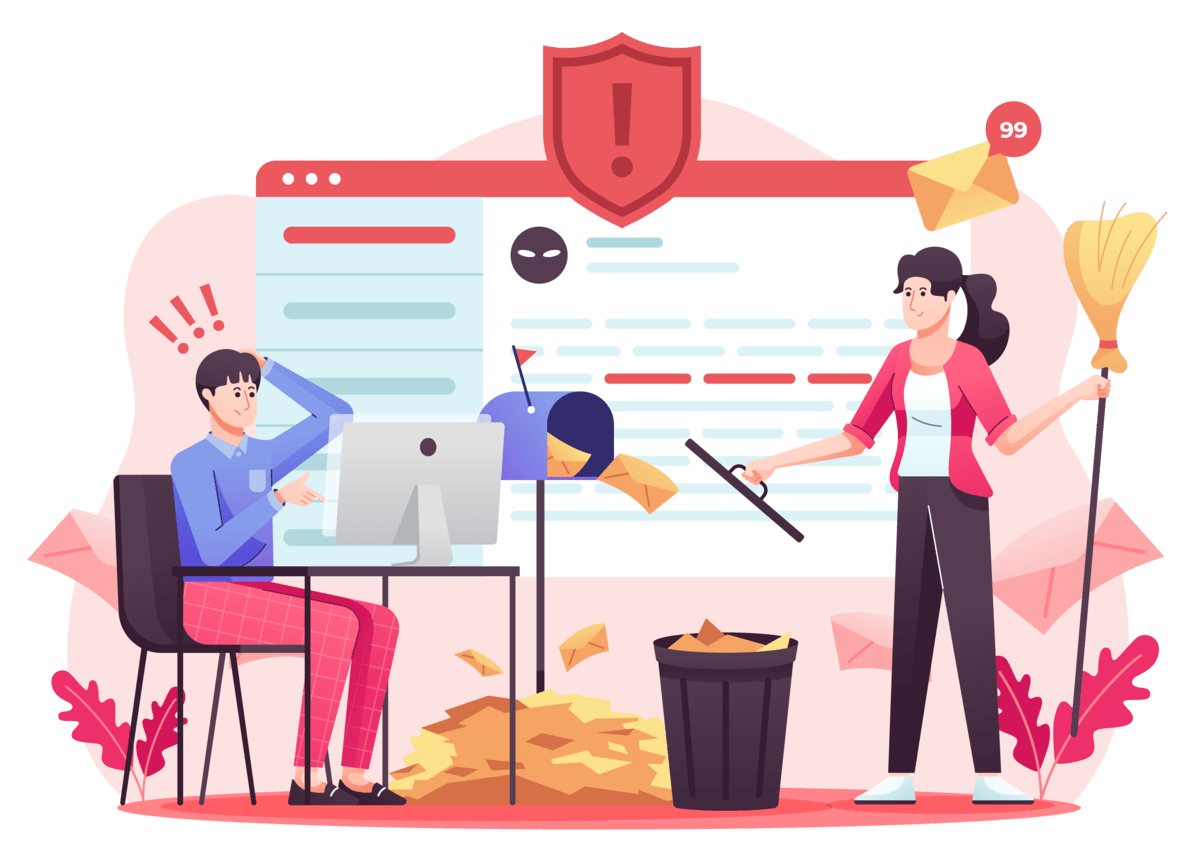
In recent years, email scams have become a major threat to business cyber security. Not only small businesses, but also many large enterprises have become targets of email scammers. In this article, we summarize 10 real cases of businesses falling victim to email scams over the past few years, with details on the incidents, outcomes, and lessons learned. Our aim is to help enterprise customers increase their awareness and vigilance to prevent similar incidents from happening.
1. Yahoo falls victim to a billion-dollar email scam (2014)
In 2014, Yahoo CEO Marissa Mayer's email account was hacked, resulting in the company losing billions of dollars in investments. The hacker posed as Mayer and sent a fake investment advice email to executives, who were subsequently scammed, leading to significant losses for the company. This incident serves as a reminder that even large enterprises can be targets of email scams.
2. Austrian airplane manufacturer FACC loses $54 million to email scam (2016)
In 2016, Austrian airplane manufacturer FACC fell victim to an email scam that resulted in the company losing $54 million. The hacker posed as the CEO and sent an urgent request for a wire transfer to the finance department. Due to the lack of strict verification procedures, the finance department was scammed into transferring the funds to the hacker's account. FACC reported the incident immediately and managed to retrieve $10 million through tracing the flow of funds. This incident serves as a reminder that enterprises need to establish comprehensive security mechanisms and train their employees to be alert to such scams.
3. UK healthcare institutions hit by ransomware attack (2017)
In 2017, the UK's National Health Service (NHS) was hit by a large-scale ransomware attack that caused healthcare institutions to be unable to operate normally. The hacker sent malicious software via email to healthcare institutions, encrypting their computer systems and demanding payment of a ransom to decrypt them. Due to the lack of data backups, many healthcare institutions had no choice but to pay the ransom to restore their systems. This incident serves as a reminder that data backups and strengthened cybersecurity measures are crucial for enterprises and institutions.
4. Microsoft employees fall victim to phishing attack (2018)
In 2018, Microsoft employees fell victim to a phishing attack that resulted in the hacker stealing their login information and passwords. The hacker posed as a Microsoft employee and sent malicious links via email to other employees, further attacking Microsoft's internal network. Although Microsoft discovered and resolved the issue quickly, this incident serves as a reminder that enterprises and employees should not trust unknown emails and links, and should strengthen password protection and cybersecurity measures.
5. US government agencies hit by cyber attack (2020)
In 2020, the US government was hit by a cyber attack that resulted in multiple government departments and agencies having their computer systems breached. The hacker sent malicious code via email, successfully stealing a large amount of confidential files and data. This incident serves as a reminder that enterprises and government agencies need to strengthen their cybersecurity defenses, establish strict security mechanisms, and take preventive measures.
6. Google employees fall victim to phishing attack (2020)
In 2020, Google employees fell victim to a phishing attack that resulted in the hacker stealing their login information and passwords. The hacker posed as a Google employee and sent malicious links via email to other employees, further attacking Google's internal network. Google immediately took measures to protect employees' account and data security, but this incident serves as a reminder that enterprises and employees should not trust unknown emails and links, and should strengthen password protection and cybersecurity measures.
7. WHO hit by phishing attack (2020)
In 2020, the World Health Organization (WHO) was hit by a phishing attack that resulted in the hacker stealing employees' login information and passwords. The hacker sent emails posing as official WHO communications, tricking employees into clicking malicious links and stealing sensitive information and data. This incident serves as a reminder that enterprises and employees should not trust unknown emails and links, and should strengthen password protection and cybersecurity measures, as well as employee cybersecurity awareness training.
8. European Central Bank hit by phishing attack (2021)
In 2021, the European Central Bank (ECB) was hit by a phishing attack that resulted in the hacker stealing employees' login information and passwords. The hacker sent emails posing as official ECB communications, tricking employees into clicking malicious links and stealing sensitive information and data. The ECB immediately took emergency measures to protect accounts and data security, but this incident serves as a reminder that enterprises and employees should not trust unknown emails and links, and should strengthen password protection and cybersecurity measures.
9. Walmart falls victim to email scam (2021)
In 2021, Walmart fell victim to an email scam, resulting in the company losing millions of dollars. The hacker sent false payment information posing as a supplier, tricking Walmart's finance department into transferring a large amount of money to the hacker's account. Walmart immediately took measures to recover some of the losses, but this incident serves as a reminder that enterprises and employees should strengthen payment security and confirmation mechanisms to prevent losses from email scams.
10. UK bank falls victim to email scam (2022)
In 2022, a UK bank fell victim to an email scam, resulting in millions of pounds in losses to customers. The hacker sent false payment information posing as an official bank email, tricking many customers into transferring a large amount of money to the hacker's account. The bank immediately took measures to recover some of the losses and strengthen cybersecurity measures, but this incident serves as a reminder that enterprises and customers should strengthen payment security and confirmation mechanisms, as well as be vigilant and aware of email scams.
The above 10 cases illustrate the significant threat that email scams pose to business cybersecurity. To prevent similar incidents from happening, enterprises need to establish comprehensive cybersecurity defense mechanisms, including strengthening password protection, employee cybersecurity awareness training, establishing security mechanisms, and payment confirmation mechanisms. Additionally, enterprises should choose reliable cybersecurity service providers to help them achieve comprehensive cybersecurity protection and risk assessment.


